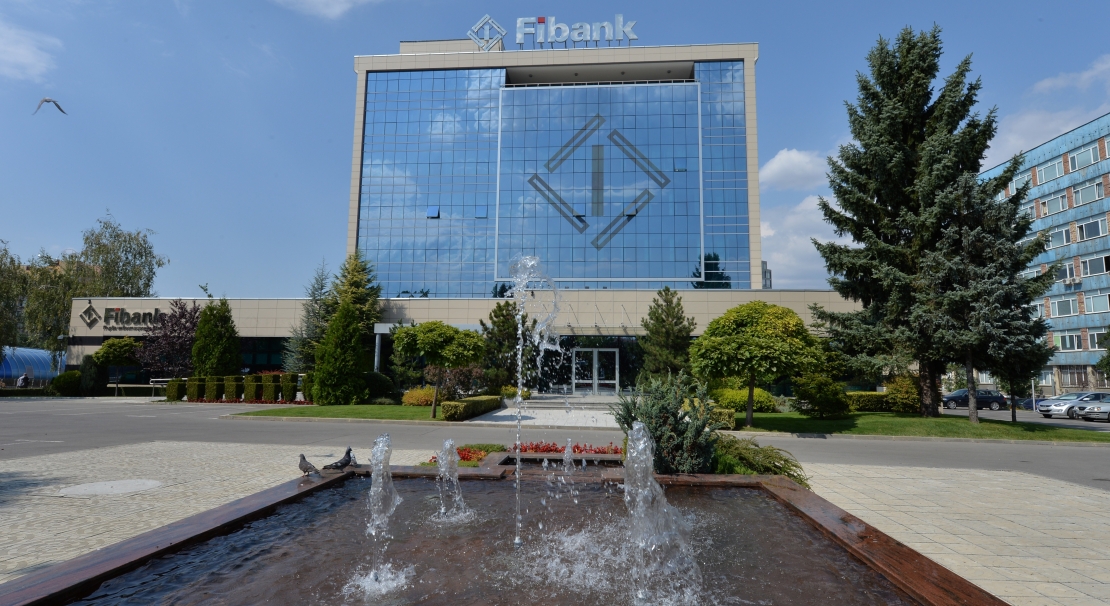The capital increase is a form of providing an additional capital buffer on the recommendation of the ECB, as a condition for Bulgaria’s accession to ERM II.
Interview for 24 Hours newspaper - June 19, 2020, issue 158
- The Bulgarian Development Bank is becoming a minority shareholder in First Investment Bank, along with other private investors. Mr. Bakalov, let us first recall who, when and why gave Fibank a recommendation to increase its capital buffers?
I would like to make one thing clear from the beginning: First Investment Bank meets all legal and capital requirements in the Republic of Bulgaria.
The ECB's recommendations from 2018 came as a result of the stress tests performed, and were based on a hypothetical adverse scenario involving strongly negative economic developments in the country over a three-year period, under which scenario the Bank would theoretically experience a shortage of capital.
We jointly developed a plan to increase capital buffers along several lines:
- Retention of the Bank's profit for the purpose of capital increase;
- Sale of acquired assets;
- Attracting an investor.
As a result, by March 31, 2020, Fibank had accumulated over 72%, or almost EUR 190 million of the required capital buffers. The pandemic situation caused a decline in stock prices on exchanges in Europe and across the world, and attracting investors became particularly difficult. Nevertheless, the Bank prepared a prospectus, published it and fulfilled all its obligations.
- Fibank is a solvent bank with a liquidity ratio of 221.64%, significantly exceeding the regulatory requirements, asset size of over BGN 10 billion, consolidated 2019 profit of over BGN 137.9 million, and profit before impairment of BGN 274.1 million… Please complete this "business card" with other important indicators.
Another key parameter is capital adequacy. It shows how much capital the bank has to cover its day-to-day operations, and the associated lending and other risks. As of March 31, 2020, Fibank’s Tier 1 capital amounted to over BGN 1.350 billion, which is far above current regulatory requirements and quite conservative compared to most European banks.
- You chose to be a public company and this capital increase had to happen through the issuance of new, ordinary, registered, book-entry shares. Did the COVID-19 crisis and the stock market decline prove to be strong factors holding back investor interest?
Of course, the crisis proved to be a significant deterrent in our effort to raise capital through the stock market. To ensure fulfillment of the task the Bank hired, at its own expense, a capital increase consultant – an international company with extensive experience in attracting investors.
Just to illustrate, this consultant indicated that all such efforts in Europe have been put on hold until subsiding of the pandemic and of its expected economic fallout.
Moreover, in a press release of 12 March this year, the ECB formally announced it was rescheduling on-site inspections at European banks and extending deadlines for the implementation of remediation actions stemming from recent on-site inspections.
The Bulgarian stock exchange suffers from low liquidity and, compared to major stock exchanges, is significantly less adapted to cope with the pressure of the pandemic. For example, for the first 4 months of the year the turnover of the Deutsche Börse, which uses the same system as the BSE, was EUR 801 billion, while that of the BSE was a modest EUR 49 million. For the same period, the turnover of the Warsaw stock exchange, the largest one in the region, amounted to EUR 354 billion. The average monthly turnover of the BSE was EUR 12 million, while that of the Frankfurt Stock Exchange was EUR 200 billion, and of the Warsaw one – EUR 88.5 billion. Naturally, raising EUR 100 million on a stock exchange with an average monthly turnover of EUR 12 million is a difficult task. It is for that reason that the exchange quoted price for the shares was not considered decisive.
- The price at which BDB is purchasing the shares has given rise to mixed opinions. Some seem to think it is above the market. The Minister of Finance explained that the issue price was determined on the basis of a complex analysis of key parameters, confirmed by the Financial Supervision Commission. How was the price actually determined?
A main parameter in determining the price of a share is its book value, i.e. the real BGN value "standing" behind each share. The bank's balance sheet is audited at least once a year by 2 independent international auditors. The book value per 1 share at the end of March was BGN 8.87. A second parameter is the exchange-quoted market value. For Fibank, it varies around BGN 2.50 - 2.60 per share. As I said, the Bulgarian Stock Exchange is not very liquid and could not accommodate such a volume of shares, which was taken into account when determining the price.
The price of BGN 5 was determined after careful analysis and it meets two key requirements: to be attractive enough to attract investors for a successful capital increase, but also to be high enough to guarantee the interest of current shareholders. The latter requirement is mandatory for public companies, i.e. such that are freely traded on a stock exchange. After taking these factors into consideration, the Bank set the price at BGN 5 per share, and the FSC approved it.
- Two investors showed interest at the last moment: the state-owned BDB and a hitherto unknown private investor. What will the bank’s shareholding look like after the deal is finalized? If you know who the other investor is, would you share with us?
This will become official after payment of the price and registration in the Commercial Register.
- Let’s now respond to criticism that the state is saving the bank for a second time. Is this such a precedent, knowing that large and well-known banks have also relied on help from their own governments?
I would like to immediately correct any qualification of this capital increase as a rescue. At the moment the Bank is in excellent shape and there is nothing to be rescued from. It meets all current regulatory requirements and reports great results.
To illustrate, the Bank's consolidated operating profit for 2017, 2018 and 2019 was BGN 181, 244 and 274 million, respectively. The capital increase is a form of providing an additional capital buffer on the recommendation of the ECB, as a condition for Bulgaria’s accession to ERM II.
- What is your short-term forecast for the developments in the banking sector? Will fees and interest rates rise or fall? Will lending slow down due to the pandemic, or gain momentum and actively support the restart of the economy?
We will probably witness acceleration in terms of demand and supply of loans – although with increased precaution, as the economic situation is unusual.
This should logically lead to an increase in credit risk, which is a component of interest on loans. Still I am optimistic and I think that Bulgaria will overcome this crisis very quickly, because, unlike the previous one, it is not structural by nature.
- What should your customers – both business and retail – expect from now on? Do you plan to launch any new products and services, or make improvements to existing ones in order to make them more attractive?
Information technology is changing traditional banking, and is already beginning to shift customer service from offices to the digital environment. Almost all daily banking transactions can be done through our remote banking platform. We offer a full range of e-banking services, as well as a large branch network which is always available for those who need a personal consultation with a banking expert.
For the first quarter of 2020 alone, interbank transfers in BGN through My Fibank increased by 97%, and those in foreign currency - by 185%. Internal bank transfers using the app increased by 80%. Credit card applications through our remote banking platform increased by 131%, online loan applications - by 80%, and deposits opened online - by 61% (data compared to Q1 of 2019).
Digitization and change in consumer behavior has led to the fact that most of our clients now prefer to bank remotely, in an online environment, rather than visiting an office.
We are investing heavily in the implementation of new technological solutions and are developing a number of improvements in digital banking.
The trend of shifting customer service to the online environment affects all banks in all countries. In the period 2008 – 2018, the total number of physical bank branches in the EU decreased from 238 thousand to 174 thousand. Bulgaria is one of the countries with the largest share of bank branches per 100 thousand people.
We are currently offering a consumer loan that can be drawn entirely online, without visiting a bank office.
By the end of the year we will also launch attractive card campaigns, special offers for existing customers and much more.






Коментари